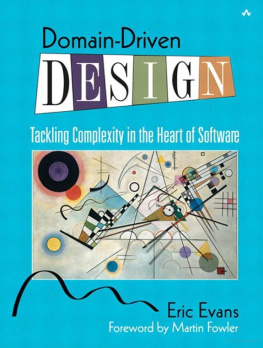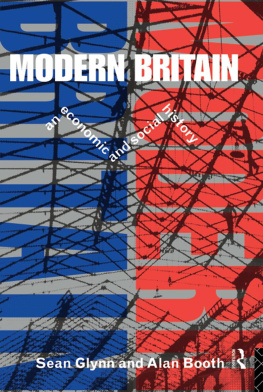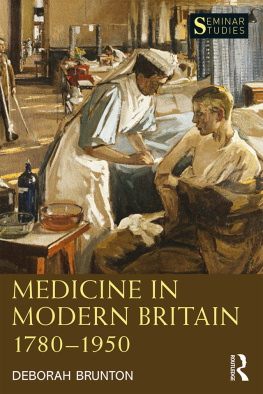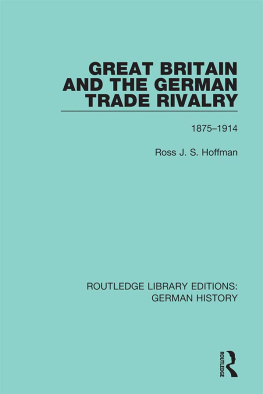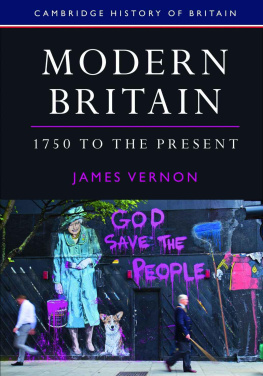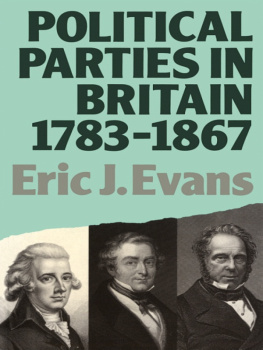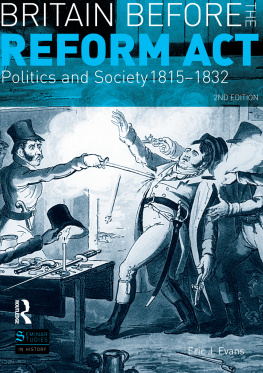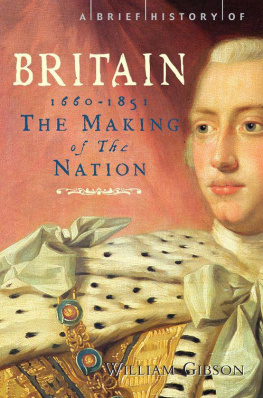First published 2011 by Pearson Education Limited
Published 2013 by Routledge
2 Park Square, Milton Park, Abingdon, Oxon OX14 4RN
711 Third Avenue, New York, NY 10017, USA
Routledge is an imprint of the Taylor& Francis Group, an informa business
Copyright 2011, Taylor & Francis.
The right of Eric J. Evans to be identified as author of this work has been asserted by him in accordance with the Copyright, Designs and Patents Act 1988.
All rights reserved. No part of this book may be reprinted or reproduced or utilised in any form or by any electronic, mechanical, or other means, now known or hereafter invented, including photocopying and recording, or in any information storage or retrieval system, without permission in writing from the publishers.
Notices
Knowledge and best practice in this field are constantly changing. As new research and experience broaden our understanding, changes in research methods, professional practices, or medical treatment may become necessary.
Practitioners and researchers must always rely on their own experience and knowledge in evaluating and using any information, methods, compounds, or experiments described herein. In using such information or methods they should be mindful of their own safety and the safety of others, including parties for whom they have a professional responsibility.
To the fullest extent of the law, neither the Publisher nor the authors, contributors, or editors, assume any liability for any injury and/or damage to persons or property as a matter of products liability, negligence or otherwise, or from any use or operation of any methods, products, instructions, or ideas contained in the material herein.
ISBN 13: 978-1-4082-2564-6 (pbk)
British Library Cataloguing in Publication Data
A CIP catalogue record for this book can be obtained from the British Library
Library of Congress Cataloging in Publication Data
Evans, Eric J., 1945
The shaping of modern Britain: identity, industry and empire, 1780-1914 / Eric J. Evans. 1st ed.
p. cm.
Includes bibliographical references and index.
ISBN 978-1-4082-2564-6 (pbk.)
1. Great Britain-Social conditions-18th century. 2. Great Britain-Social conditions-19th century. 3. Great Britain-Social conditions-20th century. 4. Great Britain-Politics and government-18th century. 5. Great Britain-Politics and government-19th century. 6. Great Britain-Politics and government-20th century. 7. Great Britain-History-18th century. 8. Great Britain-History-19th century. 9. Great Britain-History-20th century. 10. Ireland-Social conditions. 11. Ireland-Politics and government. I. Title.
DA505.E94 2011
941.081-dc22
2011006096
This book has been long in the gestation although relatively short in the writing. It reflects a teaching and research career spent in a British academic environment and a primary concentration on British history in the eighteenth and nineteenth centuries. Those familiar with my Forging of the Modern State will notice some similarities of approach. In particular, this book, like its predecessor, is structured into a large number of short thematic chapters which introduce readers to the key aspects of important topics, including recent historiographical debates and emphases. This book is also accompanied by a substantial Compendium of Information, although here not in the form of a series of appendices but as an interactive website (www.routledge.com/9781408225646) which will be regularly expanded and revised at need and in the light of the comments made by users.
The detailed information available on the website aims to mirror the thematic range of the book. Thus, readers will find information on all the governments in office during the period, results and analysis of general elections and on the impact of parliamentary reform. Other sections cover the key legislative changes concerning work, health, welfare, poverty and education. Users will also find material on the economy, including trade, taxation, prices and incomes, on the size and structure of the UK population, on diplomacy, treaties and wars and on religion.
In no sense is this book a fourth edition of The Forging of the Modern State. First, its chronological span is almost a half-century longer. This enables me to cover the entire period during which Britain was, in effect, the worlds only super-power. The book, therefore, begins with the quickening of that process still conventionally called the Industrial Revolution (though the validity of that description of economic change has been challenged) and ends with the outbreak of the First World War. It explains how Britain developed into a modern state whose economic, political and cultural dominance was felt in every continent of the world. It studies the process whereby the nations political structures at home were reformed and modernised and why its influence overseas was so substantial. The book explains how, in the process of pursuing predominantly commercial ambitions, Britain acquired the largest empire the world has ever seen. British dominance was, however, subject to increasing challenge in the latter part of the nineteenth century and the book analyses how effectively these challenges were met. Finally, it explains how, in 1914, Britain and its empire came to be involved in a world war the winning of which would so sap its energies and diminish its resources that British power and influence would never fully recover.
Secondly, in order to take account of the wealth of new research and fresh historiographical approaches undertaken during the last thirty years or so, I decided that it was better to start afresh than to try to pour yet more wine into a venerable bottle. This, therefore, is an entirely new book which attempts to engage with the historical thinking of the early twenty-first century. For example, previously dominant interpretations which explained nineteenth-century social change within the inflexible context of hostility between classes have come under challenge. Since the 1980s, the influence of Marxism has been in rampant retreat both in contemporary world politics and historical writing. Greater emphasis is now placed on complex social interactions in a range of different contexts and on how people construct and experience their own multiple identities within a variety of political, social and cultural contexts. This is one of the most valuable historical by-products of that protean, yet strangely slippery, intellectual movement known as Postmodernism and this book makes some use of its insights for the benefit of the general reader. It would be ungenerous and inappropriate to dilate at any length here on postmodernisms most obvious downsides: academic reductionism grounded in an often unsophisticated and overly present-minded evaluation of historical evidence and simple findings too often expressed in ungainly, obscurantist and jargon-laden prose.
Partly because of shifts in the intellectual world, grand narratives of political and social change, in which the rich and powerful are the principal actors, have become less fashionable. It is the authors hope that readers of this book will conclude that the reaction against what is sometimes dismissively referred to as top-down history has gone too far. It is extraordinary, for example, how little serious academic research in the diplomatic history of a period when Britain exercised world-wide influence is now being undertaken by the younger generation of scholars. Although most institutions of higher education in Britain offer degrees in History, conventional political history figures in their curricula far less than it did. The appearance in 2004 of the new


